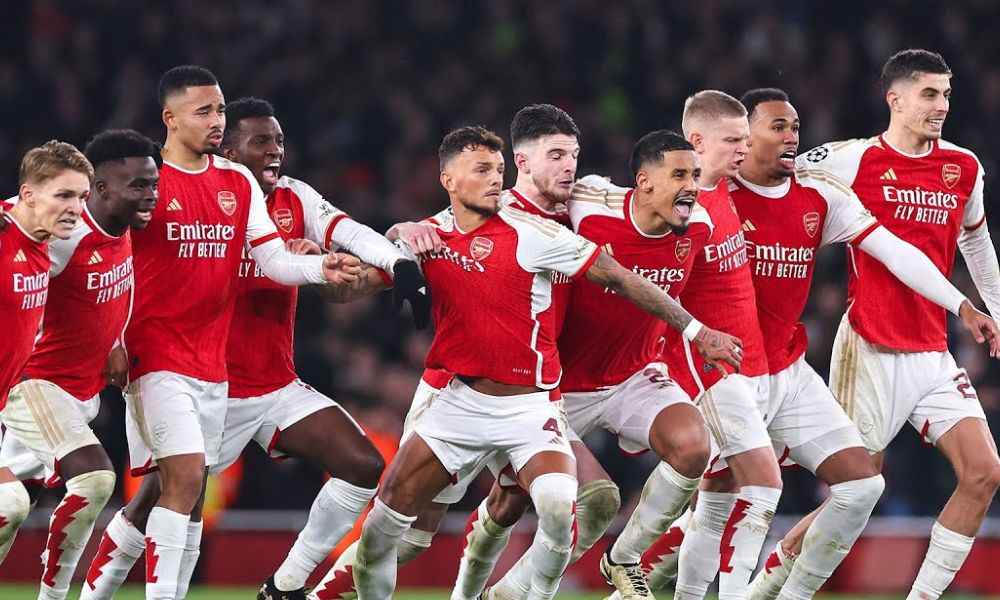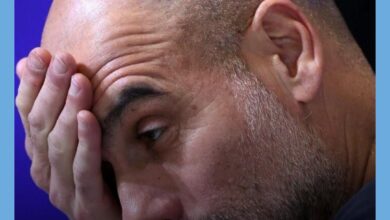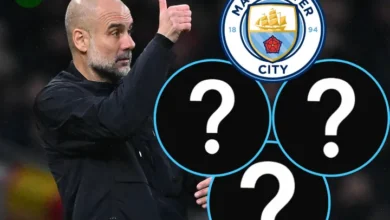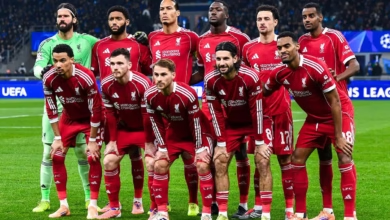John Stones opens up on Man City frustrations and shares Pep Guardiola insight
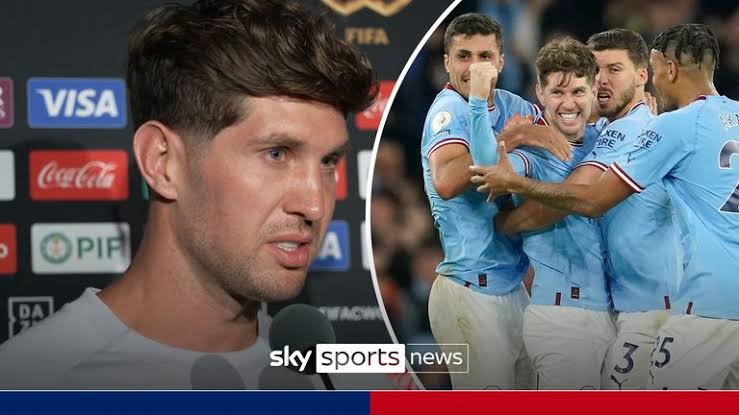
The pristine training pitches of Manchester City’s Etihad Campus have witnessed countless moments of triumph and frustration over the years, but perhaps none more poignant than the current predicament facing John Stones. The England international, once considered an indispensable part of Pep Guardiola’s tactical machinery, now finds himself grappling with a reality that many professional footballers face but few openly discuss: the gradual erosion of guaranteed playing time.
Manchester City defender John Stones has admitted he can get frustrated with his lack of playing time after starting just two Premier League matches since the end of March. This candid admission from the 30-year-old reveals the psychological toll that reduced minutes can have on even the most accomplished players. In an era where football moves at breakneck speed and squad rotation has become the norm rather than the exception, Stones’ situation serves as a microcosm of the broader challenges facing modern defenders.
The statistics paint a clear picture of his current standing within Guardiola’s plans. With ten games as an unused substitute, one missed squad selection, and four appearances off the bench, it’s quite clear that manager Pep Guardiola’s current utilisation of Stones is more than just a phase of sporadic minutes. The 30-year-old defender finds himself in unfamiliar territory, watching from the sidelines as younger players and tactical alternatives take precedence in key matches.
To understand the gravity of Stones’ current situation, one must first appreciate the journey that brought him to this crossroads. When he arrived at Manchester City from Everton in 2016 for a fee that could rise to £50 million, he represented a significant investment in Guardiola’s vision for playing football from the back. The Catalan coach saw in Stones not just a defender, but a ball-playing centre-back who could initiate attacks with his passing range and technical ability.
During his peak years at the Etihad, Stones was instrumental in City’s success. His ability to step into midfield, his composure under pressure, and his understanding of Guardiola’s positional play made him a crucial component of the team’s tactical framework. He was part of the defensive unit that helped City secure multiple Premier League titles, domestic cups, and ultimately, the Champions League trophy that had eluded the club for so long.
The defender’s versatility also made him valuable for England, where he formed partnerships with Harry Maguire and later other centre-backs in major tournaments. His performances at the 2018 World Cup and Euro 2020 showcased his ability to perform on the biggest stages, further cementing his reputation as one of England’s most reliable defenders.
Football, however, is an unforgiving sport where form, fitness, and tactical requirements can shift rapidly. Manchester City’s defensive landscape has undergone significant changes in recent seasons, with new signings and tactical adaptations influencing team selection. The emergence of younger defenders, the continued excellence of established players, and Guardiola’s tendency to rotate his squad have all contributed to Stones’ reduced role.
The manager’s approach to squad management has always been meticulous, with every decision analyzed through the lens of tactical necessity and player condition. Guardiola’s rotation policy, while often criticized by players and fans alike, has been instrumental in maintaining City’s competitive edge across multiple competitions. However, for players like Stones, who have been accustomed to regular starts, this approach can be particularly challenging to accept.
The physical demands of modern football cannot be understated. At 30, Stones is not old by conventional standards, but in the context of elite football, where pace, recovery time, and injury susceptibility become increasingly important factors, age can influence a manager’s selection decisions. The accumulation of minor injuries, the need for recovery time, and the natural decline in certain physical attributes all play a role in determining playing time
Stones’ admission of frustration reveals the human side of professional football that often remains hidden behind media training and diplomatic responses. The psychological impact of reduced playing time extends far beyond simple disappointment; it affects confidence, match sharpness, and the player’s sense of purpose within the team structure.
For a defender who has been accustomed to the rhythm of regular matches, the stop-start nature of sporadic appearances can be particularly disruptive. Defensive partnerships require time to develop, understanding between players needs to be maintained through regular play, and the mental sharpness required for high-level defending can diminish without consistent game time.
The frustration Stones describes is not merely about personal ambition or ego; it stems from a genuine desire to contribute to the team’s success. Players at his level have dedicated their lives to football, and the opportunity to compete at the highest level is what drives them. When that opportunity becomes limited, the emotional and psychological response is entirely natural and understandable.
Manchester City’s approach to squad management reflects the demands of modern football, where teams compete across multiple competitions throughout an extended season. The Premier League, Champions League, FA Cup, and League Cup all require squad depth and tactical flexibility. Guardiola’s rotation policy, while sometimes controversial, has been crucial in maintaining player fitness and preventing burnout.
From a tactical perspective, different opponents and competitions may require different defensive approaches. Some matches might favor pace and physicality, while others might prioritize technical ability and passing range. The manager’s decisions are influenced by numerous factors, including the opposition’s strengths and weaknesses, the specific tactical plan for each match, and the physical condition of available players.
The competition for places at Manchester City is fierce, with world-class players in every position. This internal competition, while beneficial for the team’s overall standard, creates situations where accomplished players like Stones find themselves on the periphery of the first team. The challenge for any player in this situation is to maintain professionalism, continue working at the highest level, and be ready to contribute when opportunities arise.
One of the most significant challenges facing players in Stones’ situation is maintaining match fitness and sharpness while receiving limited playing time. Training sessions, no matter how intense, cannot fully replicate the demands of competitive matches. The speed of decision-making, the physical challenges, and the mental pressure of real games are unique experiences that cannot be simulated.
For defenders specifically, the timing of tackles, the understanding of when to step up or drop back, and the communication with teammates all require regular practice in match conditions. When these opportunities are limited, it becomes increasingly difficult to maintain the standards expected at the highest level.
The mental aspect of preparation becomes even more crucial when playing time is uncertain. Players must maintain their focus and motivation despite not knowing when their next opportunity will come. This requires exceptional mental strength and professionalism, qualities that Stones has demonstrated throughout his career but which are nonetheless tested in these circumstances.
As Stones navigates this challenging period, several factors will influence his future at Manchester City and beyond. His response to the current situation, his ability to seize opportunities when they arise, and his willingness to adapt to a potentially different role within the squad will all be crucial determinants of his continued involvement.
The January transfer window and the summer transfer period always bring speculation about player movements, particularly for those seeking more regular playing time. However, Stones’ commitment to the club and his understanding of Guardiola’s methods suggest that he will continue to fight for his place rather than seek an easy exit.
His experience and leadership qualities remain valuable assets to the team, even if his playing time has been reduced. The mentorship he can provide to younger players, his understanding of the club’s playing philosophy, and his ability to perform when called upon all contribute to his continued value to the squad
Stones’ current situation offers broader lessons about resilience and adaptation in professional sports. The ability to handle setbacks, maintain professional standards during difficult periods, and continue working toward personal and team goals are qualities that define successful athletes beyond their technical abilities.
The defender’s honesty about his frustration is refreshing in an era where players often provide sanitized responses to difficult questions. His admission acknowledges the reality of professional football while demonstrating his commitment to the team and his desire to contribute meaningfully to their success.
The support system around players during these challenging periods becomes crucial. The coaching staff, teammates, and personal support networks all play roles in helping players navigate the psychological challenges of reduced playing time. Manchester City’s approach to player welfare and mental health support will be important factors in how Stones manages this period.
In the context of Manchester City’s broader objectives, squad depth and the ability to rotate players without significant drops in quality are essential components of sustained success. While individual players may experience frustration with their roles, the collective strength of the squad has been instrumental in the club’s achievements under Guardiola.
The challenge for the management team is to balance individual player needs with team requirements. This involves honest communication about expectations, clear explanations of selection decisions, and support for players during difficult periods. The way clubs handle these situations often determines their long-term relationships with players and their reputation within the football community
John Stones’ admission of frustration with his reduced playing time at Manchester City represents more than just one player’s personal challenges; it reflects the broader realities of modern football. The 30-year-old defender’s situation illustrates the delicate balance between squad management, individual ambitions, and team success that defines contemporary football.
As he continues to navigate this challenging period, Stones’ response will likely define not only his immediate future but also his long-term legacy at the club. His professionalism, experience, and quality ensure that he remains a valuable asset to Manchester City, even if his role has evolved from that of a guaranteed starter to a crucial squad member.
The football world will continue to watch how both player and club manage this situation, as it provides insights into the human side of professional sports and the resilience required to succeed at the highest level. Stones’ journey serves as a reminder that even the most accomplished players must adapt to changing circumstances while maintaining their dedication to the team’s success. In the end, football is a sport where careers are defined not just by peak performances but by how players respond to adversity. John Stones’ current challenge may ultimately become a testament to his character and professionalism, regardless of how much time he spends on the pitch.
